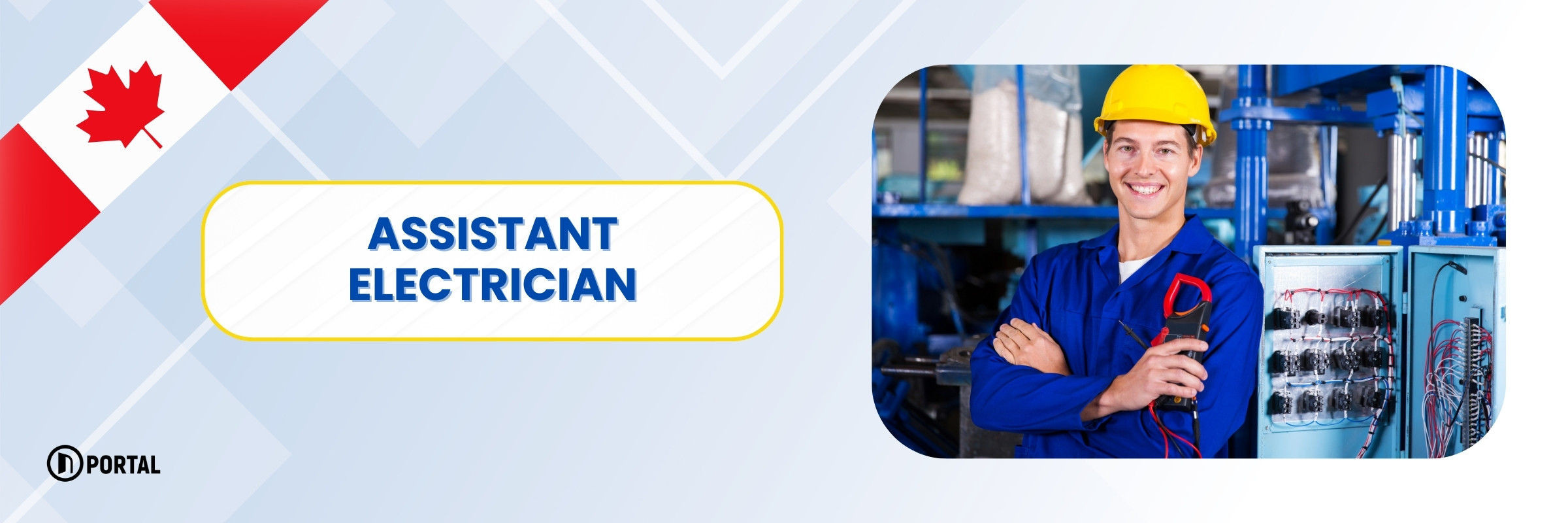
Work as an assistant electrician for Canadian construction companies, contractors, or maintenance firms.
This position is eligible under two Canadian work permit programs:
Assistant electrician roles are a great way to gain Canadian work experience in the electrical trade. While this role itself may not be PR-eligible, it can help you progress to licensed electrician positions in Canada that do lead to permanent residency pathways.
As an assistant electrician in Canada, you will:
Help licensed electricians install, maintain, and repair electrical systems
Carry tools, materials, and equipment to work areas
Assist in running wires, cables, and conduits under supervision
Drill holes, mount boxes, and support fixtures for installations
Keep the worksite safe, clean, and organized
Follow safety guidelines and wear protective gear at all times
Perform basic tests and checks under supervision
Learn Canadian electrical standards and practices on the job
Language:
Francophone Mobility: Good English + B1 level French test (or proof of French-language education)
LMIA Work Permit: Good English (French not required, but an asset)
Education: Minimum high school diploma; vocational training in electrical work is an asset
Experience: Previous experience as an electrician
Skills:
Basic understanding of electrical systems and tools
Ability to follow instructions and work under supervision
Physical stamina to lift, carry, and move equipment
Safety awareness and attention to detail
Teamwork, reliability, and punctuality
Applicants may qualify under Francophone Mobility (no LMIA required) or LMIA Work Permit (employer applies for LMIA)
Candidates must pass a French language test for Francophone Mobility (exceptions apply if you studied in French)
Once hired, immigration consultants will assist with the work permit process
Construction firms, electrical contractors, renovation companies, and maintenance service providers across Canada hire assistant electricians.
Francophone Mobility: For French-speaking applicants. Faster process, no LMIA required, less paperwork for employers, lower service fees.
LMIA Work Permit: For non-Francophone applicants. Requires employer to prove no Canadian worker is available. More complex, takes longer, and usually involves higher service fees.
Work permits are usually issued for 1–3 years, depending on your job offer. They can often be renewed if your employer extends your contract.
Yes, but you will need to apply for a new work permit tied to your new employer.
Absolutely. Our team assists with job matching, paperwork, the French test (for Francophone applicants), LMIA processes, and your entire work permit application.
To work as a licensed electrician in Canada, you must:
Foreign experience can help you enter the trade, but you must complete the Canadian licensing process to legally work as an electrician.
The process — from job offer to receiving your work permit — can take up to 1 year, depending on whether you apply under Francophone Mobility or LMIA, your profile, employer response time, and visa processing times.